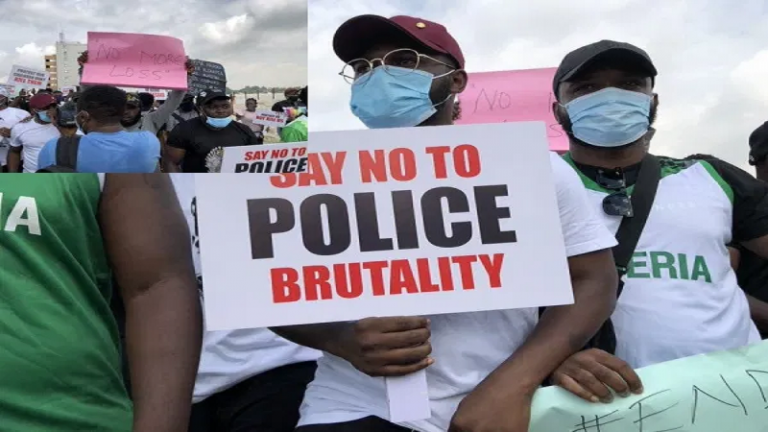
EndSARS is a social movement in Nigeria advocating for the dissolution of the Special Anti-Robbery Squad (SARS), a notorious unit known for abuse of citizens’ rights. The movement gained momentum in 2017 and resurged in October 2020 after revelations about SARS abuses. The Nigerian government officially dissolved the SARS unit on October 11, 2020, but the protests on October 20, 2020, resulted in several fatalities, highlighting the ongoing struggle against police brutality in the country.
During the protests, photojournalists reported moments that depict various issues. As part of the requirements for fulfilling the completion of Project Seminar course taught by Professor Panos Kompatsiaris of the Department of Media Communications, National Research University Higher School of Economics, Moscow, Russia, our analyst examined the protests through a selection of images that establishes brutality from both actors – police (SARS) and protesters. The goal is pursed on the premise that images could be an alternative means for viewing and accessing pains of others.
On December 18, 2023, the outcomes were presented [presentation slide] at a virtual roundtable discussion. The discussion was led by Mr Silas Obumneme Udenze, PhD Researcher from Universität Oberta de Catalunya in Spain. Nigeria’s academic community was represented by Associate Professor Abdulrasaq Adisa, Mass Communication Department, University of Ilorin, Kwara State, and Associate Professor Olusegun Liadi, Sociology Department, Fountain University, Osogbo, Osun State. Civil society was represented by Mr Dare Adeoye, Social Development Expert, and Mr Abideen Olasupo, Global Director, Brain Builder Youth Development Initiatives.
Register for Tekedia Mini-MBA edition 19 (Feb 9 – May 2, 2026): big discounts for early bird.
Tekedia AI in Business Masterclass opens registrations.
Join Tekedia Capital Syndicate and co-invest in great global startups.
Register for Tekedia AI Lab: From Technical Design to Deployment (next edition begins Jan 24 2026).
Our analyst notes that the ENDSARS protest in Nigeria marked a pivotal moment in the nation’s history, bringing to light the complex interplay between visual representation, political dynamics, and societal issues.
Key Insights from the Roundtable Discussion
Defining Visual Economy: Silas Udenze rightly emphasizes the importance of delving into the memories of the protest. The term “visual economy” encompasses the collective impact of images on public discourse, revealing the implicit messages and societal reflections embedded within these visuals. Mr Udenze’s critique suggests that the focus should not solely be on the broad concept of visual economy but on the appropriateness of the images used to convey the lack of democratic governance and the authorities’ irresponsibility.
Government Perspective and Media Role: Dr. Adisa Rasaq adds another layer to the discussion, highlighting the role of the media in shaping public opinion. The agenda-setting function of media becomes crucial, especially when examining the government’s perspective. Dr Rasaq’s assertion that visual economy should only be a concern when the aim is to profit by the media underscores the challenges posed by media ownership. The differentiation between traditional and social media in handling the protest demonstrates the need for a balanced and responsible approach to coverage during such events.
Social Norm Breakdown and Trust Issues: Dr. Liadi’s perspective introduces a critical dimension by attributing the protest to a breakdown in social norms and trust between the government and citizens. This breakdown is linked to citizens’ desire for fair treatment. The protest, according to Liadi, acted as a forceful expression within a social movement, where the voiceless transformed into the voiced. The relationship between citizens and the police, as members of the same society, underscores the complexities of the issues at hand.
Youth Empowerment and Government Response: Mr. Dare Adeoye and Mr. Abideen Olasupo provide contrasting views on the protest’s outcomes. Adeoye sees the youth as having spoken and conveyed a powerful message. In contrast, Olasupo acknowledges the government’s potential reluctance to address all youth demands but emphasizes the protest’s success in sending a compelling message. The manipulation of images to mislead the public, as mentioned by Olasupo, raises questions about the role of misinformation in shaping perceptions.




Good efforts from Mr Mutiu Iyanda. The report covers all salient points regarding EndSARS protests. Future researchers can tap idea from this project seminar.